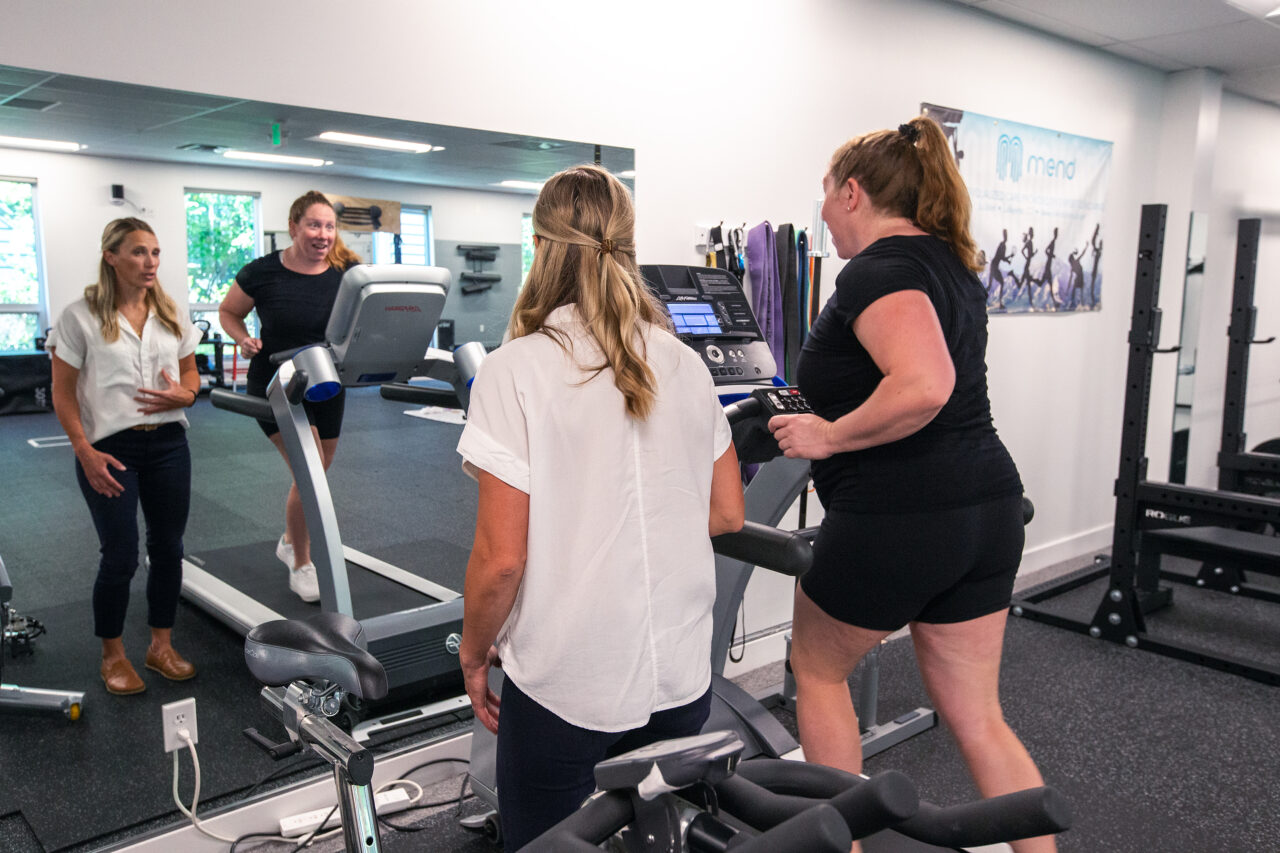By: Chelsey Vasquez, PT, DPT, PRPC
As a Boulder and Lafayette based Physical Therapist, I often work with runners who experience stress urinary incontinence (SUI)—the involuntary leakage of urine during high-impact activities like running. While this can be frustrating, the good news is that pelvic floor muscle training (PFMT) can help manage and even eliminate SUI symptoms, allowing you to run without worry.
What is SUI, and Why Does It Affect Runners?
SUI occurs when pressure on the bladder exceeds the efficiency of the pelvic floor muscles, causing urine leakage during activities like running, jumping, or sprinting. Female runners are especially prone to this because high-impact movements place extra strain on the pelvic floor.
How Running Impacts the Pelvic Floor
Research shows that running can affect pelvic floor muscle coordination and appropriate activation. In some runners, the pelvic floor muscles fail to activate at the right time during running, increasing the risk of SUI. Additionally, high-impact activities may exacerbate this issue by placing more stress on the pelvic muscles.
How Physical Therapy and Pelvic Floor Manual Therapy Can Help
Pelvic floor muscle training is one of the most effective ways to reduce or prevent SUI in runners. Improving the efficiency of these muscles helps improve their ability to coordinate appropriately with the pressures and demands of running. PFMT can:
- Reduce tension of the pelvic floor muscles which leads to inefficiency.
- Improve muscle coordination to reduce leakage.
- Reduce or resolve SUI symptoms with regular practice.
- Strengthen or improve endurance of the pelvic floor muscles if needed to improve support of the bladder during high impact activities.
- Learn appropriate bladder habits that can further impact athletic performance
Considerations for Runners
While PFMT is effective, it’s important to remember that not all runners develop SUI. Factors like pregnancy, childbirth, and overall pelvic health can influence your risk. In fact, tension in the pelvic floor muscles is actually more common than just pure weakness. Additionally, running technique and exercise intensity matter – here at Mend, we adjust gait patterns with a running analysis and training programs to ensure you can meet your running goals with the best outcome.
Getting Started with PFMT
If you experience SUI, it’s essential to get a pelvic floor assessment from a physical therapist who specializes in pelvic health. We can guide you through coordination exercises and help you learn how to appropriately activate your pelvic floor muscles during your runs.
Final Thoughts
SUI doesn’t have to stop you from running. With the right exercises and training, you can improve the efficiency of your pelvic floor, improve your running performance, and enjoy a leak-free run. Reach out to one of our pelvic health physical therapists to get started on your personalized plan! Schedule here in either our Boulder or Lafayette locations today!

